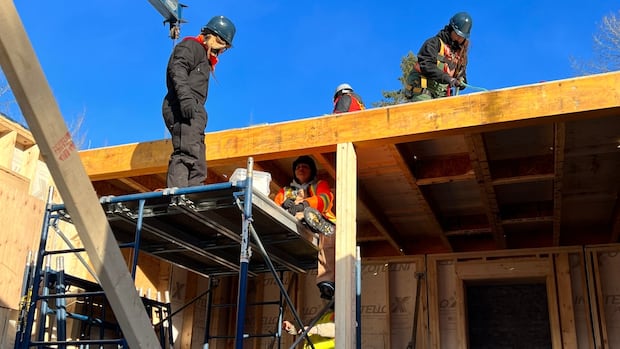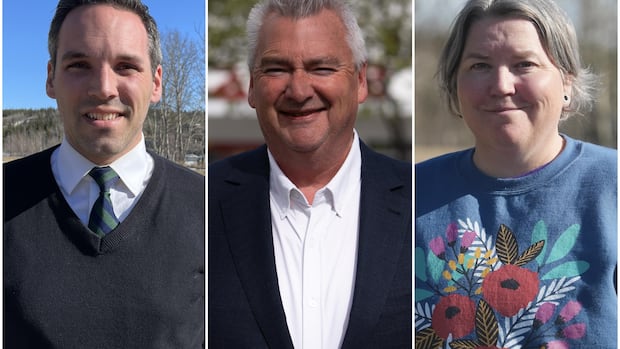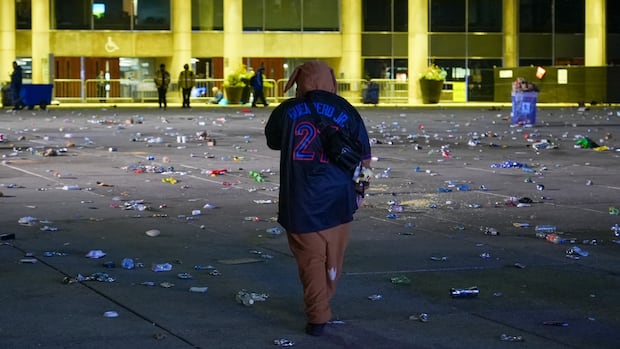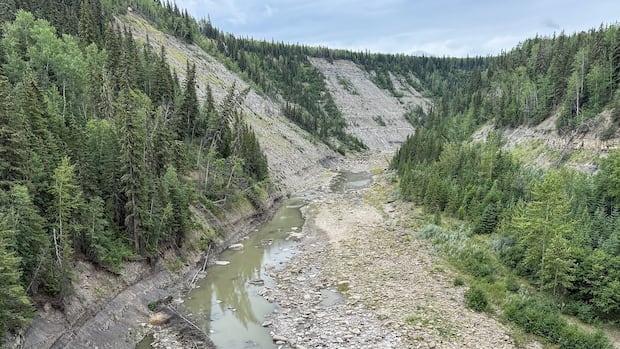Construction on a $20-million modular housing factory is underway in Kirkland Lake — and there’s a unique aspect to it.
Keepers of the Circle, operated by the Temiskaming Native Women’s Support Group, is building the 24,000-square-foot factory in hopes of bringing more sustainable and durable homes to First Nations communities in northern Ontario.
“Our goal is that our local Indigenous communities in the north benefit from these homes. We know a lot of communities are experiencing overcrowding, they’re experiencing mould issues because of continuous flooding of their homes,” said Bertha Cormier, executive director of Keepers of the Circle.
The project, which aims to help Indigenous women build careers in construction, began a few years ago when the Indigenous group partnered with Tooketree Passive Homes, a company that specializes in energy-efficient prefabricated homes based in southern Ontario.
Supporting Indigenous women in construction
In the fall of 2022, six Indigenous women were sent to Baysville for three months to be trained by the company in making home construction panels for a 600-square-foot home to be built in Temiskaming.
“These women had no previous construction experience with tools or even how to read a measuring tape,” she said.
“They built the walls, the roof, as well as the floor panels. And then they brought the panels back to the district and put the house together the last week of January of 2023.”
Cormier said that the house is completely off-grid, solar powered with a compostable waterless toilet and a catchment system to supply water for washing.
After seeing success in building the first home, Cormier said the Keepers of the Circle decided to expand and build a factory of their own to serve northern Ontario.
The factory will be connected to a 10,000-square-foot administrative building through a breezeway. It will house an on-site daycare centre able to accommodate up to 30 children, a cultural room and a staff kitchen. There will also be six rooms dedicated to housing women unable to travel to and from work.
“We have one that’s coming from Moosonee. So, when she’s working, she’ll be able to live right on site and then travel home on the weekend until she finds suitable housing in the district,” Cormier said.
Since the start of the project — which is funded by Canada Mortgage and Housing Corporation — 12 other Indigenous women have been trained in construction and will be offered positions at the factory, Cormier said.
“A lot of these women are young women, just starting families or haven’t even started their families yet. And to see that empowerment they feel when they say, ‘Hey, we did it, we built this house, we did this,’ it’s truly inspiring to see,” she said.
Those Indigenous women joined the project after taking part in an eight-week pre-employment skills training program called Culture, Confidence and Competence, also known as the “triple C program.”
“These women that come into our triple C program are either unemployed, or underemployed or at the risk of being homeless,” Cormier said.
She said the program helps young people to reconnect with their culture and prepare to enter the workforce.
The program “helps build their confidence to make them competent employees. So throughout the eight weeks of pre-employment skills training, by them showing up every day on time, returning after their lunch hour, they are already setting themselves up,” Cormier said.
Sustainable building materials
Cormier said she hopes the factory will encourage a shift toward more sustainable materials in home construction.
“When we think of our conventional stick builds, the typical go-to is either spray foam or fibreglass batting insulation. Our panels will be built using cellulose,” she said, referring to a plant fibre made from recycled paper and cardboard, “as well, ensuring that all seams, all crevices, all cracks in the home are sealed properly.”
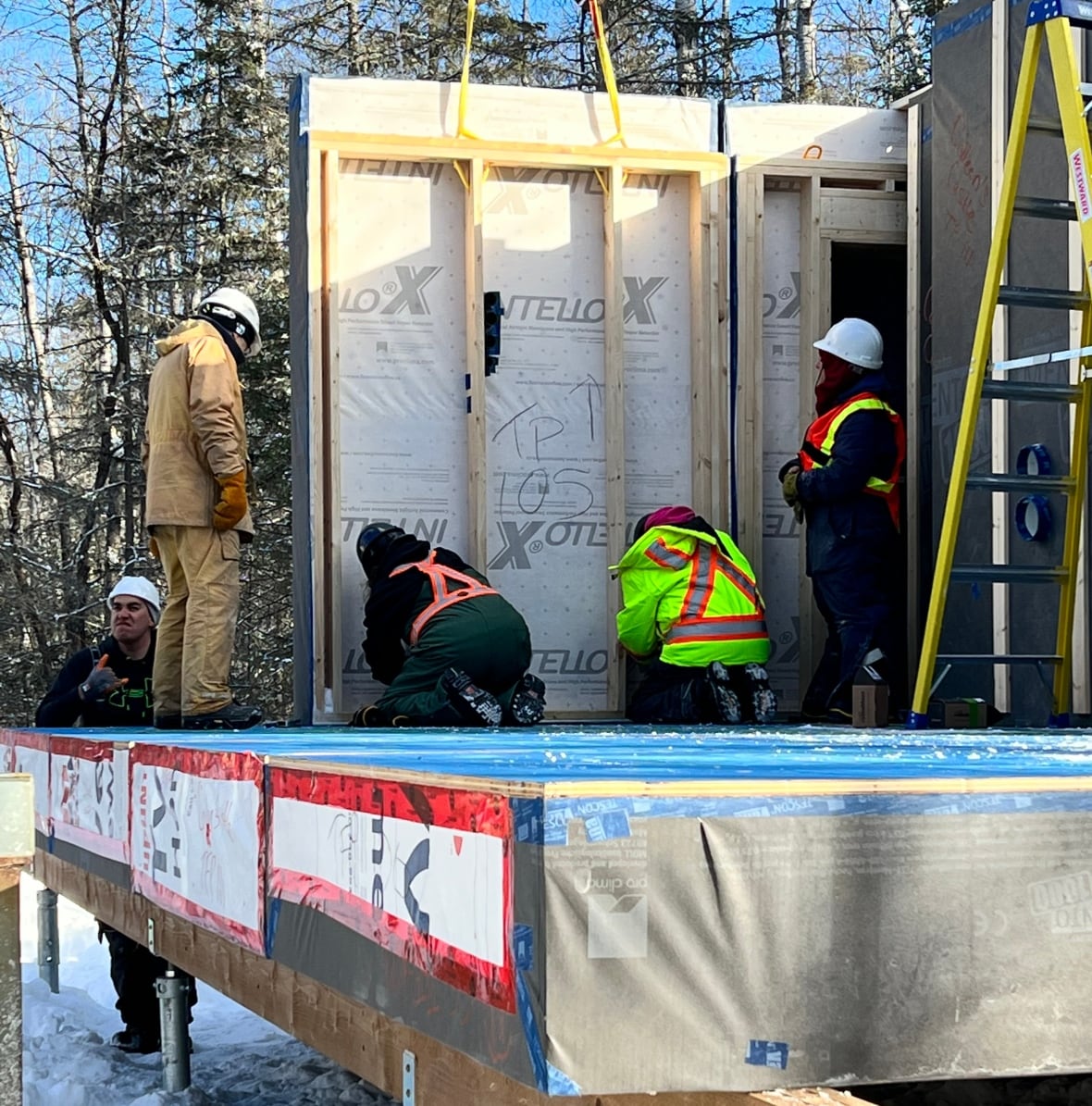
Cormier said the homes could help lower the cost of utility bills since heat would not escape, and specifically refers to elders in First Nation communities who are on a budget, paying high rental coats and high utility bills.
“As an Indigenous person, we always talk about looking forward seven generations, and these homes that we are building will definitely be around after seven generations. So it’s a good opportunity for us to walk the talk.”
Kirkland Lake Mayor Stacy Wight said the town sold the land to Keepers of the Circle for $1 per acre last summer “to take concrete steps towards reconciliation with the peoples that were here first.”
“They’ve almost set a precedent for other municipalities to really step up.” Cormier said. “It’s major, it’s huge and we are very grateful for our partnership with the Town of Kirkland Lake.”
The homes won’t be strictly for Indigenous or First Nation communities, and will be made available to the public market as well, Cormier added.
The factory is set to be operational by July 1 next year.


